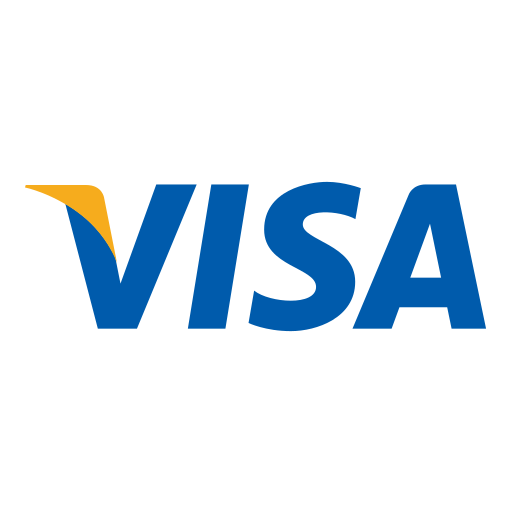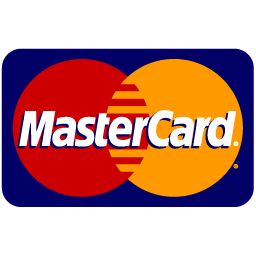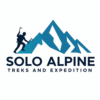Frequently Asked Questions (FAQs) — Solo Alpine Treks Nepal
Planning your trekking or climbing adventure in Nepal? Below are answers to the most common questions travelers ask before joining Solo Alpine Treks. From visa details to health and safety, we’ve got you covered.
1. Do I Need a Visa to Travel to Nepal?
Yes. Most international travelers require a Nepal tourist visa. You can easily get one on arrival at Tribhuvan International Airport (Kathmandu) or at designated land border entry points. Alternatively, you can apply in advance at a Nepalese Embassy or Consulate in your home country.
Nepal offers 15-day, 30-day, and 90-day tourist visas, all extendable. Always verify current visa regulations before travel for a smooth experience.
2. How Do I Obtain a Nepal Tourist Visa?
You have two main options:
Visa on Arrival (VOA):
Fill out an arrival/visa form, pay the visa fee, and present your passport at immigration upon arrival in Kathmandu or certain border crossings.
You can also complete the online visa application form on the Department of Immigration’s website before arrival to save time.From a Nepali Embassy/Consulate:
Apply before travel if you prefer having your visa in advance or if your nationality isn’t eligible for VOA (e.g., Afghanistan, Ghana, Nigeria, Syria, etc.).
Documents Required for Visa on Arrival:
Valid passport (6+ months remaining)
One blank visa page
Two passport-size photos
Address of your hotel/accommodation
Cash for visa fee (USD preferred)
Visa Fees (subject to change):
15 Days – USD 30
30 Days – USD 50
90 Days – USD 125
3. Can I Extend My Visa in Nepal?
Yes. You can extend your visa at the Department of Immigration in Kathmandu or Pokhara.
Extensions can total up to 150 days per calendar year, with a cost of USD 30 for 15 days or USD 2 per additional day (payable in Nepalese Rupees).
4. What Travel Documents Should I Bring?
Along with your passport and visa, bring:
Several photocopies of your passport and visa
Extra passport photos (for permits, SIM cards, etc.)
Trekking permits (TIMS, national park/conservation permits — arranged by Solo Alpine Treks)
Travel insurance documents
Medical disclaimer form (if required)
5. Do I Need Travel Insurance for Trekking in Nepal?
Yes — travel insurance is mandatory for all high-altitude trekking and climbing with Solo Alpine Treks.
Your policy must cover:
Medical emergencies and hospitalization
Helicopter evacuation from remote or high-altitude regions
Trekking, climbing, and adventure activities
Trip cancellation and interruption
Loss or theft of luggage or equipment
Repatriation in case of fatality
We recommend a minimum coverage of USD 100,000 for emergency evacuation and medical treatment.
6. Should I Disclose My Medical Conditions Before the Trip?
Absolutely. Inform both your trekking agency and insurance provider about any pre-existing medical conditions. This helps our guides prepare better for your safety.
Certain conditions (heart disease, asthma, diabetes, etc.) may require a doctor’s fitness certificate before joining a trek.
7. Can I Take My Medicines During the Trek or Expedition?
Yes, carry all prescribed medications in sufficient quantity for the entire journey, ideally in their original packaging.
Inform your guide about your medical needs. It’s also wise to bring a personal first-aid kit including:
Painkillers
Bandages and antiseptics
Altitude sickness medication (Diamox)
Oral rehydration salts
8. Are Medical Facilities Available in Remote Trekking Areas?
Medical facilities in high-altitude or rural regions are limited. Some major trekking routes (like Everest and Annapurna) have basic health posts or aid stations, but serious emergencies require air evacuation to Kathmandu hospitals.
This is why comprehensive travel insurance is essential.
9. What Vaccinations Should I Get Before Traveling to Nepal?
Consult your doctor or a certified travel clinic. Commonly recommended vaccinations include:
MMR (Measles, Mumps, Rubella)
Tetanus, Diphtheria, Pertussis (Tdap)
Polio
Hepatitis A & B
Typhoid
Japanese Encephalitis (for rural/monsoon travel)
Rabies (if you’ll be around animals)
Malaria prophylaxis (for Terai or Chitwan areas)
COVID-19 and Influenza
10. What Health Precautions Should I Take While in Nepal?
Altitude Sickness (AMS):
Ascend gradually, stay hydrated, avoid alcohol, and know the symptoms (headache, nausea, dizziness). Descend if they worsen.Water Safety:
Drink only boiled, filtered, or bottled water.Food Safety:
Eat freshly cooked meals; avoid raw or unpeeled foods.Mosquito Protection:
Use repellent and wear long clothing in lower regions.Hygiene:
Wash hands often; carry sanitizer.Sun Protection:
Use high-SPF sunscreen and sunglasses.Air Quality:
Kathmandu can be dusty—consider wearing a light mask.
11. What Is the Best Season to Travel to Nepal?
Nepal has four main travel seasons:
Autumn (Sept–Nov): Best season for trekking — clear skies, stable weather, and perfect mountain views.
Spring (Mar–May): Beautiful bloom season with mild temperatures and rhododendron forests.
Winter (Dec–Feb): Cold at high altitudes, but great for lower treks.
Summer/Monsoon (Jun–Aug): Rainy but suitable for rain-shadow areas like Upper Mustang and Dolpo.
12. What Standard of Food and Accommodation Can I Expect?
Cities (Kathmandu, Pokhara):
Wide range from budget hotels to luxury stays. Multi-cuisine restaurants are common.Trekking Routes:
Stay in teahouses — basic lodges offering simple twin rooms, shared bathrooms, and hearty local meals like Dal Bhat, noodle soups, pasta, and momos.Camping/Expedition Treks:
Accommodation is in tents, with food prepared by our trained kitchen crew.
13. How Reliable Are Telecommunications and Internet Facilities in Nepal?
Cities: Excellent 4G and Wi-Fi availability.
Trekking Regions:
NTC and Ncell mobile networks cover most trails, though signal strength varies.
Wi-Fi is available in many teahouses (often for a small fee).
Satellite phones are carried by our guides for emergencies.
Electricity:
Power is generally reliable, but carry a power bank for charging during long treks.
14. Is Nepal Expensive for Travelers?
Nepal is known as a budget-friendly destination.
Approximate costs:
Teahouses: $5–$20 per night
Mid-range hotels: $30–$80 per night
Meals: $2–$10 (local); $8–$20 (tourist restaurants)
Trekking Packages: Range from $500 to several thousand depending on duration and region.
A comfortable daily budget is $30–$100, excluding trek costs.
15. Should I Carry Cash or Use Credit Cards in Nepal?
Cash is essential, especially during treks.
Cash: Widely accepted everywhere.
ATMs: Available in major cities but rare in mountain regions.
Cards: Accepted in large hotels and restaurants only.
Currency Exchange: USD, Euro, and GBP can be exchanged easily in Kathmandu and Pokhara.
Always carry enough Nepalese Rupees (NPR) and some smaller denominations for rural areas.
16. Is Tipping Customary in Nepal?
Yes, tipping is part of Nepal’s hospitality culture and highly appreciated by trekking staff.
Recommended Guidelines (per day):
Lead Guide – $20/day
Assistant Guide – $15/day
Porter – $10/day
Tips are usually pooled and given at the end of the trek as a gesture of gratitude for their hard work.
In cities, a 5–10% tip at restaurants and for hotel staff is standard.
✅ Solo Alpine Treks ensures transparency, safety, and genuine guidance — so you can focus on enjoying Nepal’s beauty while we handle the logistics.
Affiliations



We Accept



Contact Us
- +977 9863992346
- info@soloalpinetreks.com
- soloalpinetreks@gmail.com
- Thamel, Kathmandu, Nepal
